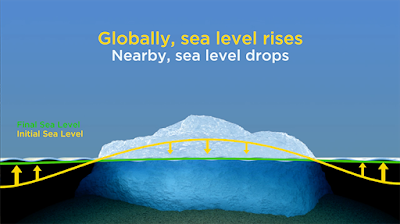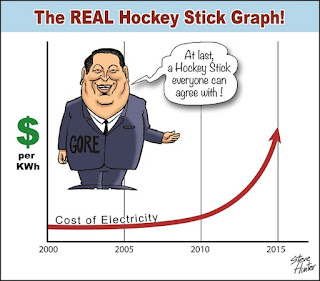Published on CBC news on November 30th, 2019, it's called A Letter to the West:
"Let's put aside the climate change thing for a bit and focus on some realities
Why Alberta and Saskatchewan should pay attention to Ontario's painful economic lesson
This column is an opinion by Robert Fraser of Hamilton. He is a service technician in the scientific industry, a musician, amateur astronomer and political junkie.
Dear Westerners,
I'm
one of the people many of you in Alberta and Saskatchewan likely
despise. Yep, I plugged my nose and strategically voted Liberal on
election day.
I
don't think much of our prime minister. Though well-intentioned, he
doesn't seem to have the intellect or vision of his father. And we could
all use some of that in these complex times.
I've
lived in Ontario all of my adult life and I'll soon be 60. Never worked
in the public sector. Never had a unionized job. Always a wage slave
lining the pockets of my corporate masters to keep my family afloat.
Well, almost ...
Back
in the '90s it didn't matter who you voted for – free trade and NAFTA
were being pushed on us like Buckley's cough syrup (tastes bad, but it
works). Even Jean Chrétien caved after Bill Clinton told him it wasn't
negotiable.
The ink wasn't even dry on these radical trade deals when the jobs started disappearing. Lots of them.
As I recall, we lost around 200,000 manufacturing jobs in Ontario during that miserable decade and beyond.
"...earning a decent living
isn't a right in this world — it's a rare privilege."
Unlike the "boom and bust" oil jobs out West, we knew our jobs were never coming back.
Adjustments
were made. Families sold the second car, made do on one income for long
periods of time. Frequently there were no incomes.
I
was an under-employed middle-aged man for almost four years, and my
polished resume meant nothing. We came so close to losing our home. I
remember delivering papers in my beat-up car and unloading trucks at the
local Walmart at night.
I'll never forget my wife accepting charity one
time because the floor under the Christmas tree was going to look
sparse to our kids that year.
Even
today, the skeletons of the old manufacturing plants are all around us
in Ontario. I know the anguish you're feeling in the West.
The sad reality is that earning a decent living isn't a right in this world — it's a rare privilege.
In case you're wondering, my family is OK now, but things changed.
The economy isn't what it used to be, and an argument can be made that it's worse.
But
eventually, Ontario adapted.
Industries like service, information
technology, and logistics picked up some of the slack. Finance and real
estate values boomed. Many Ontarians discovered their entrepreneurial
skills — some saw success.
People
out West like to work and earn a decent living, just as we do elsewhere
in Canada. No argument there. But I never heard anyone in Ontario say
that the source of our troubles lay elsewhere in Canada.
Let's
put aside the climate change thing for a bit and focus on some
realities.
The truth is, the pipelines are stuck in the courts. In
Canada, the government doesn't get to do an end-run around the law
— just ask Justin Trudeau how that SNC Lavalin affair turned out.
What
if the pipeline cases wind up in favour of the First Nations folks? All
of that oilsands crude will stay landlocked. Any politician who tells
you the government trumps the courts is a liar.
Another
truth is that the good times in the oilpatch were going to come to a
grinding halt within a generation or so anyway. The supply isn't
endless, and there's a good reason we're now mining oilsands and
drilling offshore to incredible depths.
The smart money is getting out of oil. Even Saudi Arabia is desperately trying to diversify its economy away from oil.
Our misguided government bought the Trans Mountain pipeline project
because no one taking the long view of the industry wanted it. The
world will eventually run out of petroleum and you won't be passing
along those great jobs to your grandchildren.
Again, any politician who tells you otherwise is a liar.
And
about that climate-change thing: Yes, I'm one of them. I drive an
electric car. It cost me $40,000 after a $14,000 rebate from Ontario
(before Premier Ford). I haven't spent a dime on gas in two years and
the car blows the doors off most on the road. More and more people are
going to realize that the benefits of going electric go far beyond
reducing CO2 emissions.
That said, the climate-change thing is important.
I
checked this out with a calculator and it's about right: If the world
is a basketball, all that is precious to us — the deepest oceans to the
thinnest air above us — is in the skin of that basketball.
We will
change our energy system or give our grandchildren a legacy of death,
it's that simple.
And I know western Conservatives love their grandchildren as much as I love mine.
The Liberal plan
is to build pipelines and use the royalties to invest in green projects.
What a great strategy: The house is on fire, and we're literally going
to pour gasoline on the fire and hope this will make enough money to buy
a hose to hook up to the hydrant before everything burns down.
Make sense? It doesn't make sense to me either.
There's hope for all of us, though: I read an article saying that a smart company is investing $200 million into wind farming in Alberta, for example.
It's a start. The world is going to have to transition to alternative energy very quickly, and you need to get a jump on it. And it's high time we make the privileged wealthy people and companies help pay for it. With privilege comes responsibility.
Want to know what I want?
I
want our government to insist Bombardier sets up a mass transit
manufacturing plant in Edmonton next time we write them a big fat
cheque. I want to see Saskatchewan entrepreneurs get grants to set up
wind power projects over those vast grain farms. I want the West to lead
the way in the new transition. And I want Canada to lead the world.
Charles Darwin said it best: Evolution doesn't favour the strongest — it favours the ones who best adapt to change.
From one Canadian to another,
Robert Fraser, Hamilton"





















